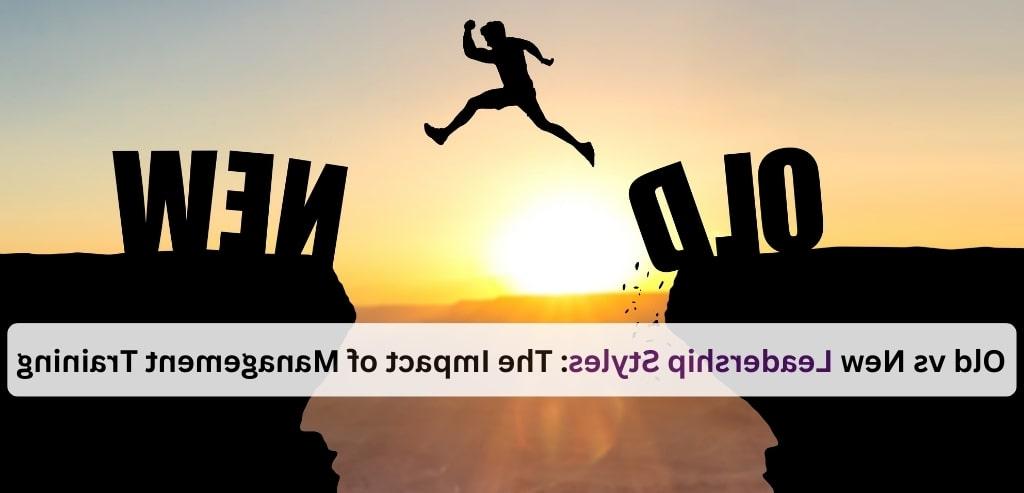
The leadership styles and philosophies that govern different organisations are not static; they have undergone great changes over the years. Traditional leadership concepts emphasise control, hierarchical organisational structures, and expository top-to-bottom communication. Alternatively, the modern concepts of leadership, which are now gaining momentum, emphasise the aspects of collaboration, empowerment, and emotional intelligence. These changes have no small way; they have been influenced by changes in the content and intention of various leadership and management courses designed to impart skills with which leaders can respond to modern organisational challenges. This blog will analyse the attributes of old and new leadership styles and, in the end, show how management training has played a very important role in the evolution.
Traditional Leadership Styles
Traditional leadership styles emphasise control, hierarchy, and top-down directive communication, as well as transactional, autocratic, and catastrophic models. Not much input from teams is allowed in decision-making. Hence, a culture of compliance rather than creativity is nurtured. Characteristics of traditional leadership styles include:
- Tomada de decisão centralizada: Os líderes mantêm o controle rígido sobre todas as decisões e processos. Por um lado, isso garante uma rápida tomada de decisão; Por outro lado, o faz com o custo do moral da equipe. Colaboração.
- Limited Feedback: The dialogue tends to be a one-way street, whereby leaders provide information to subordinates, while open dialogue is seldom encouraged.
- Focus: Power traditionally rests in the position, meaning old-style leaders see authority as the main goal rather than collaboration.
Embora essa abordagem possa ter funcionado em ambientes estáveis e previsíveis, agora promoveu o desligamento e inibiu a inovação. Paradigmas oscilam amplamente em torno da colaboração, inclusão e empoderamento. Esses tipos de teorias tendem a ter líderes trabalhando mais como facilitadores do que com abordagens mais tradicionais. As principais características dos dias modernos incluem o seguinte:
Modern Leadership Approaches
There are contrasting views with regard to leadership: while some old-style leadership has apparently existed for centuries, leadership theories like transformational leadership and servant leadership are born in the modern era, with paradigms largely oscillating around collaboration, inclusivity, and empowerment. These kinds of theories tend to have leaders working more as facilitators than with more traditional approaches. Key characteristics of modern days include the following:
- Descentralização da tomada de decisão: Os líderes modernos capacitam suas equipes, incluindo seus membros no processo de tomada de decisão, aumentando assim o engajamento e criando um senso de propriedade. Inteligência:
- Open Communication: The leader promotes two-way communication, actively provides feedback, and maintains an atmosphere where ideas flow freely.
- Emphasis on Emotional Intelligence: A década passada viu o crescimento da inteligência emocional como um fator importante na liderança; Os líderes foram treinados para reconhecer e controlar suas emoções e os de sua equipe. Ele prepara os líderes com as habilidades para aceitar novos estilos de liderança, enquanto agem contrários aos modelos mais antigos. Aqui está como o treinamento da gestão afetará os estilos de liderança:
Role of Management Training
Management training forms a bridge between the old and the new leadership styles which can be achieved by leadership and management courses. It prepares leaders with the skills to accept new styles of leadership while acting contrary to older models. Here is how management training will affect leadership styles:
- Cria habilidades: Programas de treinamento, incluindo cursos de liderança e gerenciamento, concentram-se em habilidades centrais que incluem comunicação eficaz, resolução de conflitos e inteligência emocional, de maneira mais necessária no contexto da liderança moderna. Abordagem, criação de uma cultura de confiança e transparência. Dado que as organizações estão lutando por muitos desafios no mundo em ritmo acelerado, não é preciso dizer que o papel da liderança é fundamental. Treinamento de gerenciamento, especialmente através de vários cursos de liderança e gerenciamento
- Mindset Shift: Management training encourages leaders to shift from an old controlling-oriented mentality to today’s more collaborative approach, building a culture of trust and transparency.
- Adaptation to Change: How to manage the evolving situation with such training to ensure teams are agile and innovative.
Conclusion:
The changing face of leadership from a traditional to a modern approach marks a radical shift from organisational functioning and team interaction. Given that organisations are fighting their way through many challenges in the fast-paced world, it goes without saying that the role of leadership is paramount. Management training, especially through various leadership and management courses, desempenha um papel crucial nessa evolução, ajudando os líderes a ajustar, se envolver e inspirar suas equipes. MUDANÇA MUNDO

Leave a Reply